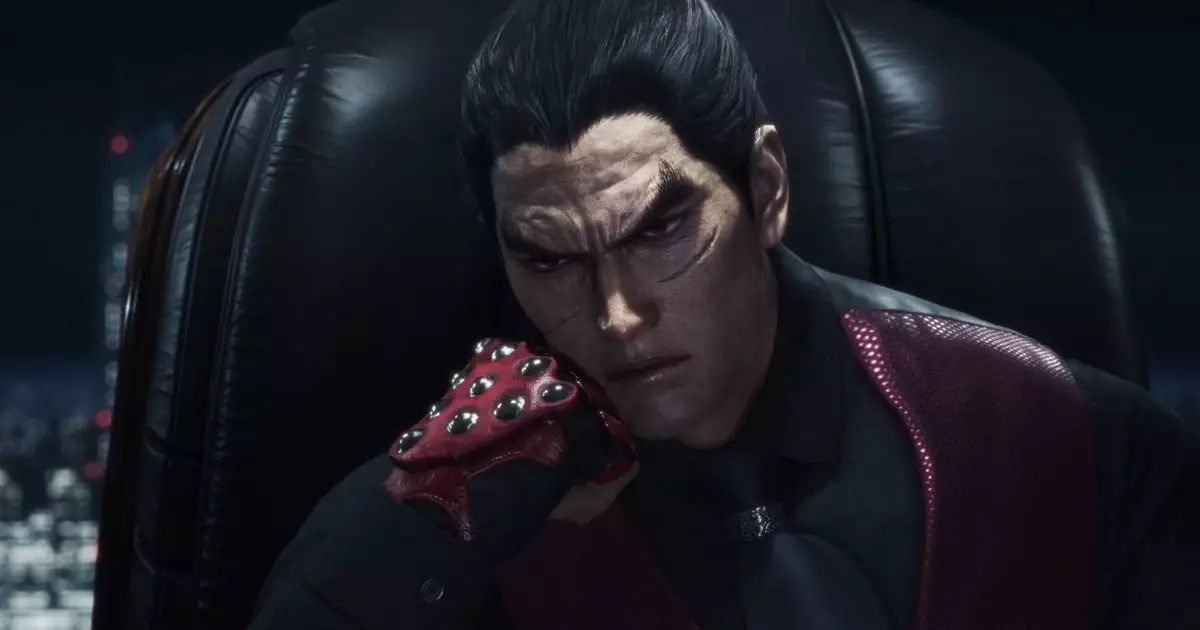Game development is often romanticized in media as a creative and rewarding endeavor, but behind the glamour lies a world riddled with immense pressure. This was strikingly highlighted by Katsuhiro Harada, the long-time director of the illustrious Tekken series, who recently opened up about the stretch of anxiety and mental health issues he endured during the release of Tekken 4 in 2001. His experience serves as a stark reminder of the unseen toll that creative industries can exert on individual well-being, revealing a common yet often overlooked side of this competitive field.
Harada recounted how Tekken 4 did not achieve the commercial success expected of it. This perceived failure, combined with a lack of backing from Bandai Namco, culminated in a state of profound stress that manifested physically in a bewildering way—hair loss on one side of his body. Although stories of stress-induced ailments aren’t rare, the specific occurrence of unilateral hair loss raises questions about the broader ramifications of untreated stress in high-stakes environments. It can serve as a cautionary tale for creatives everywhere, underscoring the need for mental health awareness in industries where success is often measured in financial returns and critical acclaim.
The Agony of Criticism
The road to success is indeed dotted with criticism, and Harada’s poignant comments reveal just how isolating it can be for creators in the industry. In his account, he illustrates the visceral experience of feeling abandoned in his struggles, lacking a single ally during the development of Tekken 4. This kind of emotional loneliness can be debilitating, leading to a downward spiral of self-doubt and despair. Harada’s retrospection brings to light an essential conversation regarding professional support systems in workplaces notorious for their unforgiving nature. Having a strong support network may be invaluable in navigating the already tumultuous waters of game production.
What makes matters more perplexing is how public perception can shape and morph over time. Once a target of scathing critiques, Tekken 4 has since been reevaluated through a rose-tinted lens, with fans now regarding it as the “most authentic and adult Tekken.” This cyclical nature of feedback can be infuriating for creators who remain tethered to the original immediacy of their work, grappling with its present and past receptions simultaneously. For Harada, the game represents both a lesson learned and a constant reminder of a painful chapter in his career. It’s both fascinating and disheartening, challenging the very notion of how success is defined and recognized in the long term.
Turning Pain into Progress
Now, many years after that tumultuous period, the Tekken series sails onward with its latest installment, Tekken 8. Harada continues to helm the franchise, a testament to resilience in the face of adversity. His philosophy of turning pain into progress demonstrates an innovative mindset, one that embraces past struggles as catalysts for creativity and improvement. The evolution of his perspective on Tekken 4 also serves to inspire anyone feeling the crushing weight of criticism—one could argue that it’s through these tribulations that artistry often flourishes.
Moreover, Harada’s endeavor to cross over cultural boundaries—for example, his attempt to include the beloved KFC mascot Colonel Sanders in a fighting game—highlights his persistent push for novelty and entertainment within the genre. It suggests that humor and creativity can counterbalance more serious pressures, making space for a joyful approach to project challenges. Whether successfully getting the Colonel into the game or not, it speaks to a larger narrative of how playful risks can pave the way for delightful surprises in game design.
All in all, Katsuhiro Harada’s candid revelations about his struggle with mental health offer a window into the more challenging aspects of game development. They remind us that every beloved title has a story behind it, often fraught with tribulation, which can lead to deep personal and professional insights. As gamers and onlookers, it’s crucial we take a moment to appreciate the relentless passion and perseverance behind the titles we love, even if it comes at a significant cost.


Leave a Reply